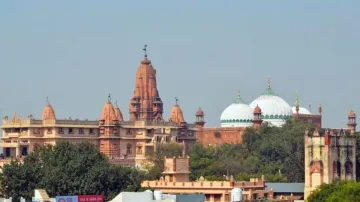The Supreme Court of India has agreed to review a petition filed by the Shahi Idgah Masjid challenging the recent verdict of the Allahabad High Court on September 17. Last month's ruling by the High Court permitted 15 suits filed by Hindu petitioners, who claim that the mosque, located in Mathura, Uttar Pradesh, stands on land believed to be the birthplace of Lord Krishna.
Supreme Court Hearing Scheduled
The petitioners have sought the removal of the Shahi Idgah Masjid, arguing that the mosque was constructed on 13.37 acres of land that they assert is historically and religiously significant as Krishna’s birthplace. The Supreme Court is scheduled to hear the petition from the Muslim side on Tuesday.
High Court Ruling and Implications
The Allahabad High Court's decision, issued on August 1 by Justice Mayank Kumar, was a landmark ruling with potential implications for similar pending cases. The court’s decision allowed the 15 suits filed by Hindu groups to proceed, following a re-opening of hearings prompted by an application from the Shahi Idgah Masjid’s legal team. The application requested a review and video recordings of the hearings.
Contested Validity of Petitions
The Shahi Idgah Intezamia Committee, which manages the mosque, has contested the validity of the petitions. The Hindu petitioners argue that the mosque is built on the ruins of a temple dedicated to Lord Krishna, citing features such as lotus carvings and motifs resembling the ‘sheshnag’—a serpent deity in Hindu mythology—as evidence.
Legal Defense Based on Places of Worship Act
In their defense, the Muslim side has invoked the Places of Worship Act of 1991, which preserves the religious status of places of worship as they existed on August 15, 1947, the date of India’s independence. They argue that this legislation should protect the mosque from alterations in its legal standing.
Historical Land Dispute
The dispute over the land dates back to 1968 when an agreement was reached between the Shri Krishna Janmasthan Seva Sansthan and the Shahi Masjid Idgah Trust. This agreement allocated 10.9 acres of land for the Krishna Janmabhoomi and the remaining 2.5 acres to the mosque.
Supreme Court's Previous Actions
Earlier in December of the previous year, the Supreme Court had declined to stay a High Court order that approved a "scientific survey" of the disputed site. However, the top court put a hold on the survey in January, questioning the clarity of its purpose after a commissioner was appointed to oversee the process.
(Inputs from agencies)
